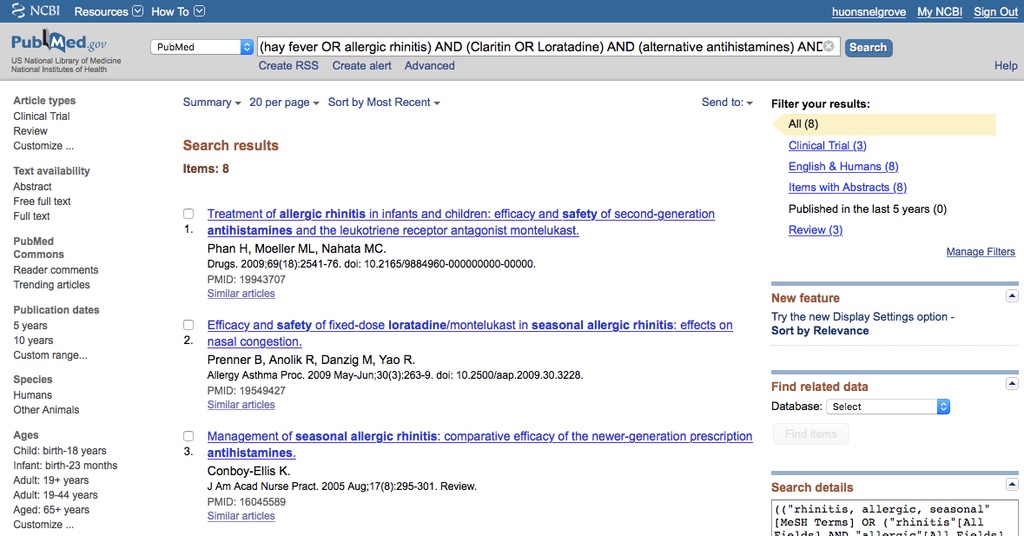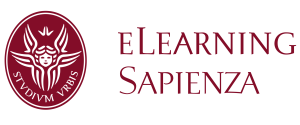Section outline
-
This lesson will develop your skills to use the largest medical source of evidence in the world: Medline. Watch the videos on how to use the medical search engine PUBMED and then do the practice exercises. Remember to register as a MEDLINE user so that you can login and save your searches for future reference. These skills are essential for all doctors and I hope you will start using the resource to do your own searches on subjects you are studying to find the latest evidence.


-
Instruction
Watch the 6 short tutorials to become competent using PubMed. You can look at the videos as many times as you like. When you finish do the short exercises to practice your new skills. You can follow the online instructions or also download the exercises as a PDF on the link "Search Exercises"
-
Instructions
The following exercises will give you practice using PubMed. Exercise 1 is an example. Follow the steps and then try yourself. A pdf version of the online instructions and exercises is also available in the link)
To begin:
1. Register on PubMed and sign in as a user with 'My NCBI'
2. Do each of the search exercises below on your computer and save each search on 'My NCBI'
Exercise 1 - A worked example
StrategySpecific Question.
A mother and father come to your surgery with their 6-year-old son, John, who is suffering from hay fever symptoms. The symptoms started 2 weeks ago. They have tried antihistamines, but John fell asleep at school. John’s father asks:Are there medications that John can take that won’t make him sleepy? John’s mother takes an anti histamine called Claritin (Loratadine) for her hay fever. Is that safe for children?
STEP 1. What key words describe the problem?
P Allergy, allergic rhinitis, hay fever, hypersensitivity
I Claritin OR Loratadine
C Alternative antihistamines
O Reduce symptoms, safety, efficacy,
STEP 2. What is the clinical question?In a 6 year old child is Claritin compared to alternative therapies more effective to reduce the symptoms of hay-fever?
STEP 3. What combinations of words will be most effective on Medline?
You need to experiment with different combinations and compare results
Combination 1:
(hay fever OR allergic rhinitis) AND (Claritin OR Loratadine) AND (alternative antihistamines) AND (safety OR reduction of symptoms)
Limits: Randomized Controlled Trial, Journal Article, English, All Child: 0-18 years, published in the last 5 years
Combination 2
Search 2: (hay fever) AND (Claritin OR Loratadine) AND (safety OR reduction of symptoms)
Limits: Randomized Controlled Trial, Journal Article, English, All Child: 0-18 years, published in the last 5 years

SEARCH STRATEGY STUDY COMMENTS
I used a few, but not all my combinations. After examining the abstracts I might decide to continue with more searches using other combinationsNotice that I used the Limits function to indicate ‘child’ and included MeSH and free text works.’
Because I was interested in studies whch asked ‘What treatment is best?’ I included a generic alternative in the comparison field (“alternative antihistamines’). However, this is not always necessary.
When I wrote “allergy” in the MeSH window I saw that “allergy” was not a MesH term. The MeSH browser indicated a synonym “ hypersensitivity”. With this word I scrolled down the MeSH page, or hierarchy of terms.
Under the term ‘hypersensitivity’ I found Hey fever/ Rhinitis, Allergy,Perennial. You can add these terms to you main search window.
Exercise 2 - You try
Specific Question.
A mother of a young African girl with cerebral malaria has told you she knows of a drug called ELQ-300 which may save her daughters life or at least reduce risks significantly.Strategy
STEP 1: What key words describe the problem?
(Hint: Refer to your microbiology text for clinical information about cerebral malaria and use the MeSH function on PubMed to identify other key concepts)
You want to know if there is any evidence of a new drug that reduces risks of complications and/or death compared to current therapy.
‘Patient’ - What kind of patient? What is the condition?
Intervention’ - What do we want to do to help the patient?
Comparison - What alternatives of treatment exist?
Outcome’ - What do we want to happen after the intervention?
Create a table to generate your key words.
STEP 2: What is the clinical question?
STEP 3: Conduct your searches using different combinations of key words from your table
STEP 4: Share your KEY WORDS and successful search strategies on the Forum with other students
-
It's easy to find information on the internet. Anybody can access medical information online. And your patients do. You need to develop an excellent understanding of how to use the medical systems. I hope the practice exercises and videos in this module will help you. Use this forum to exchange ideas or suggestions with your peers.
-
Here are 10 simple questions to test what you have learned about the different functions of the PubMed search engine which we use to find evidence on the Medline database
-
Instructions
Recognizing and writing structured clinical questions is key to success in the final exam. Study these exercises carefully.
1) Read the brief clinical scenario for each question
(2) Try to identify the components of P.I.C.O.
(3) Match the letters in PICO
(P=Population/problem; I = Intervention, Index or Indicator; C= Comparator or
Control; O = outcome
with the best possible answers. -
Now that you have developed your skills, you can conduct a more detailed search for evidence. You can choose
-
a) To go think back to the Jennifer’s story of her gastric bypass on YouTube (Lesson 1.1). What is the medical evidence for the effectiveness? Were there any effective alternatives?
-
b) To choose another clinical topic which is related to your study (or personal interests). Or which interest you particularly. Whatever subject you choose, this is an individual task.
Save your searches on PubMed's 'MY NCBI'
-
-

